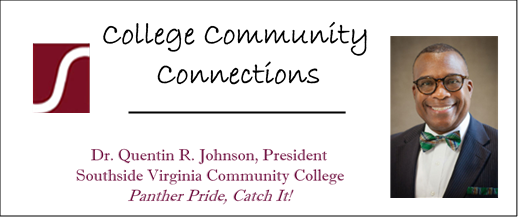
By Quentin R. Johnson, Ph.D.
World Youth Skills Day falls on July 15th. It was established by the United Nations General Assembly in 2014. The day provides an opportunity to acknowledge the importance of preparing young people for reasonable and adequate employment, either for others or as entrepreneurs. Some of the day’s activities focus on dialog among education and training institutions, businesses of various kinds and sizes, organizations that represent employers and workers, policy makers, and other stakeholders.
While the UN focuses on needs around the world, it is easy to overlook the fact that the same needs exist right here in our own country, in our own state, in our own counties, and in our own cities, towns, and neighborhoods. The imperative to offer education and training so that program completers attain the appropriate skills needed to stay current in an evolving employment environment has never been greater.
In the United States, community colleges are uniquely suited to serve this function. The nation’s first community colleges grew out of conditions prevalent more than 100 years ago when the ability to compete in the global economy required expanded opportunities for education and training. At first, high schools added upper divisions to train teachers or provide young people with vocational learning opportunities. Small private colleges emerged with an emphasis on moderating class size. These trends coalesced, and the first junior college was founded in 1901. By 1910, there were three.
Today, there are more than 1,000 community colleges across the country, and they serve more than 10 million students. Based on statistics for the 2019-2020 school year, they earned 865,504 Associate Degrees and 599,397 certificates.
In our Commonwealth, there are 23 institutions within the Virginia Community College System. Southside Virginia Community College is one of them. SVCC, which opened in 1970, serves a large population of students who are often underrepresented in institutions of higher learning. These include low-income students, students from ethnically and racially diverse backgrounds, incumbent workers, out-of-work adults, and students who are the first in their families to attend college.
Some students enroll in transfer programs that prepare them to continue their education elsewhere. Others pursue academic pathways in technological fields that prepare them to enter the workforce. Some focus on acquiring specific in-demand skills through short-term credentialing programs in areas such as HVAC, welding, power line work, and truck driving.
SVCC routinely offers opportunities for young people and adults to learn about career options and to explore various pathways for acquiring the necessary education and training in academic and technical fields. For example, this month, in partnership with the South Hill Police Department, Brunswick County Commonwealth Attorney’s Office, Virginia State Police, and others, we are offering a Criminal Justice Summer Academy. It will help young people in grades six through eight learn about careers in the criminal justice system.
In advocating World Youth Skills Day, the U.N. notes that education leads to increased productivity, higher wages, and the ability to overcome barriers to employment or self-employment. To produce these results, education must be equitable and inclusive, available to people without respect to gender, race, or ethnic background. When people have the knowledge and skills to participate in society, everyone reaps rewards in terms of safer and more cohesive communities.
Dr. Quentin R. Johnson is president of Southside Virginia Community College, an institution of higher learning that provides a wide variety of education opportunities to a diverse student population within a service area that spans ten counties and the City of Emporia. He can be reached via email at quentin.johnson@southside.edu.